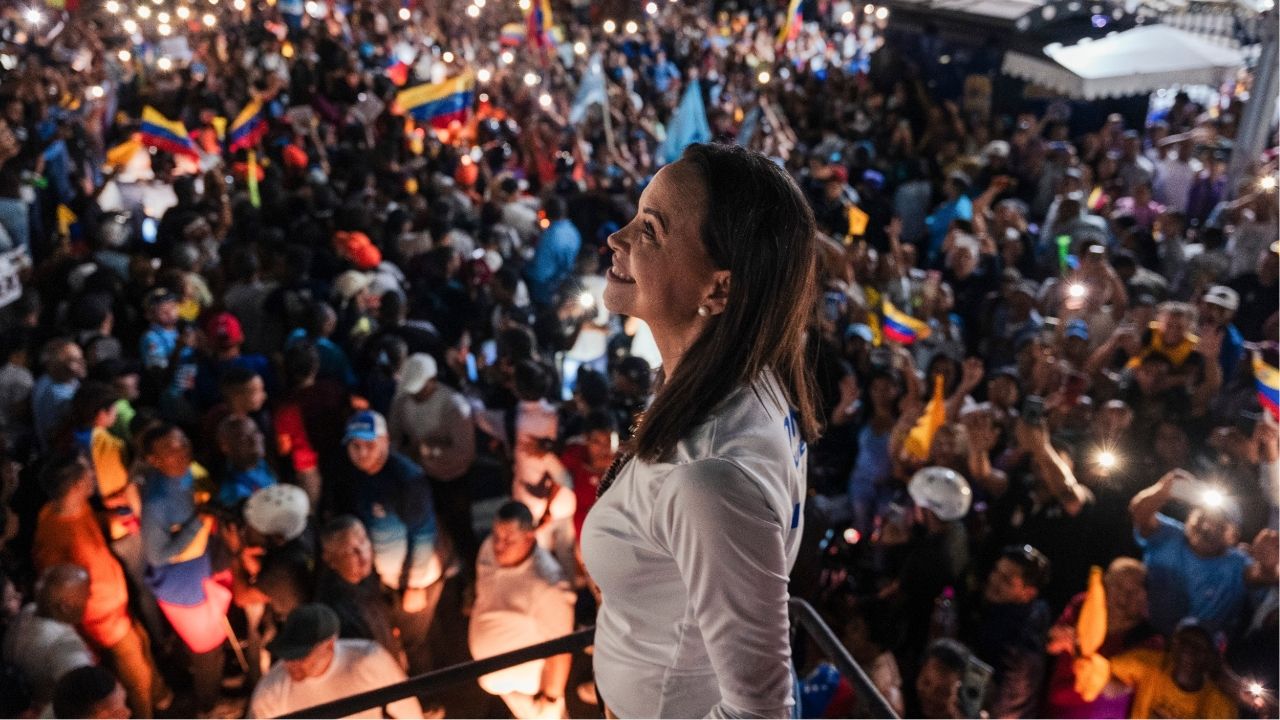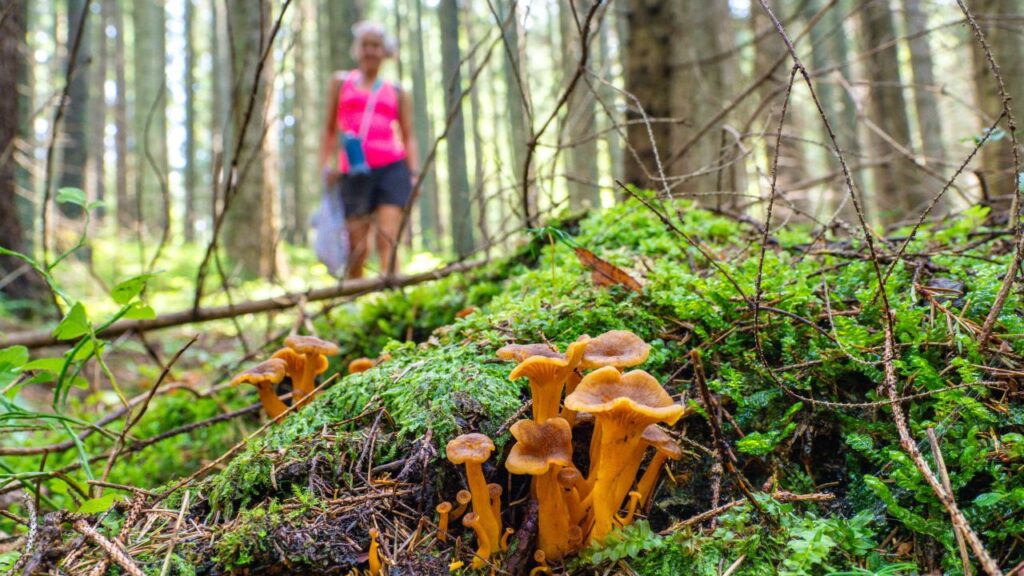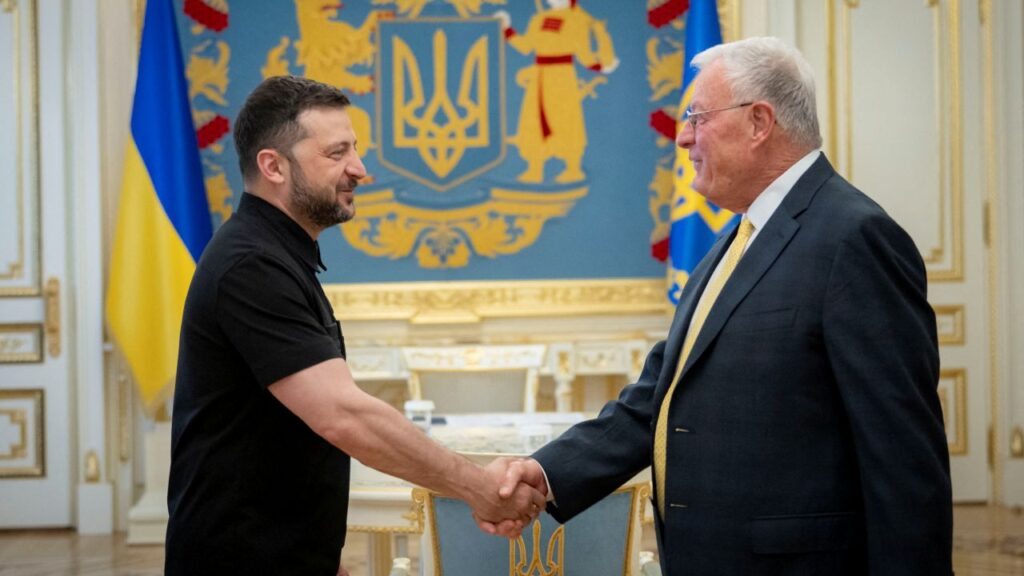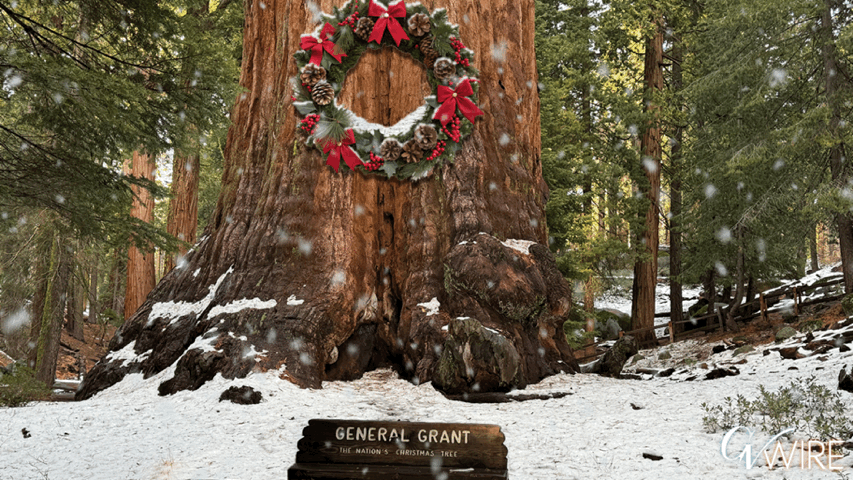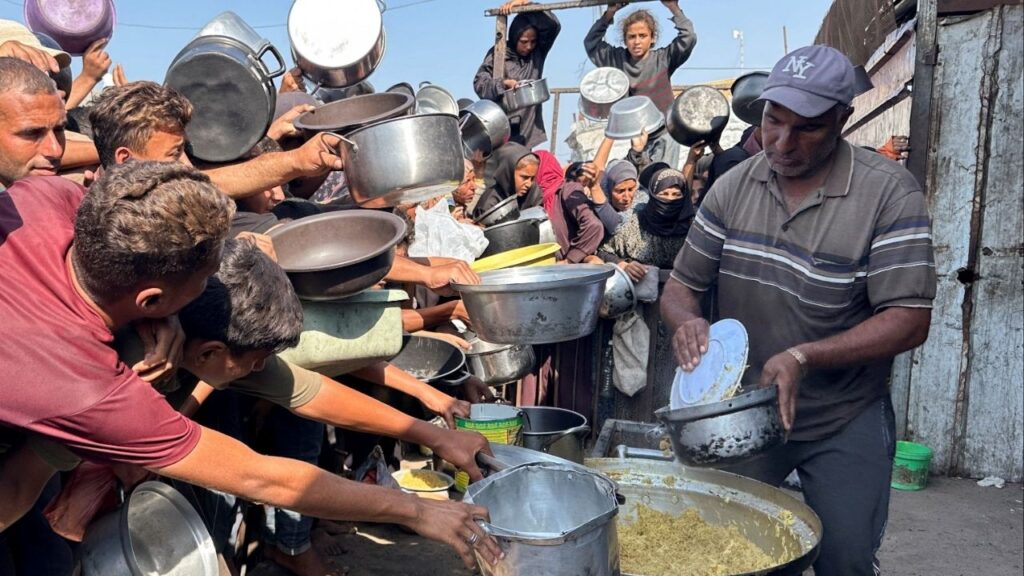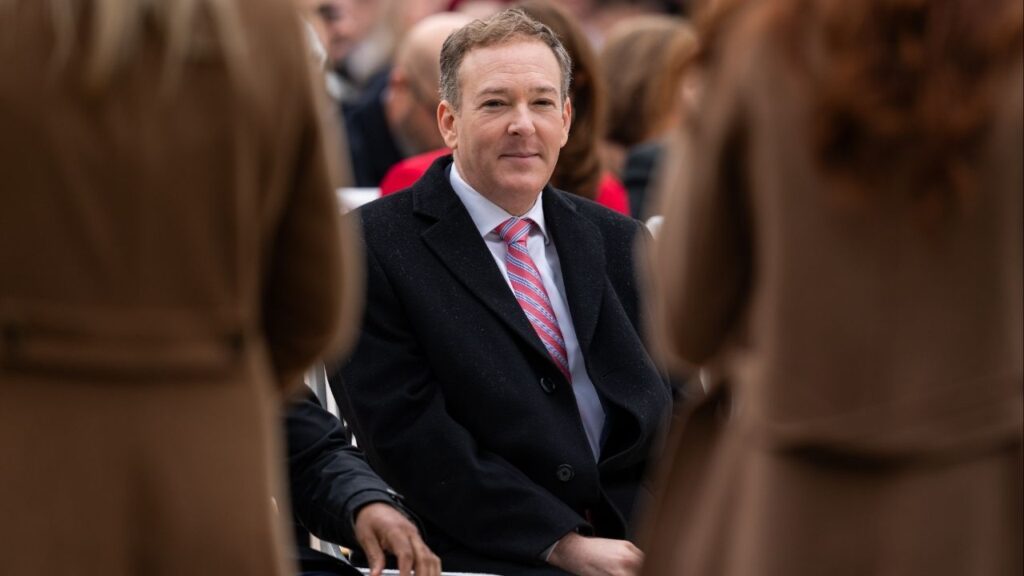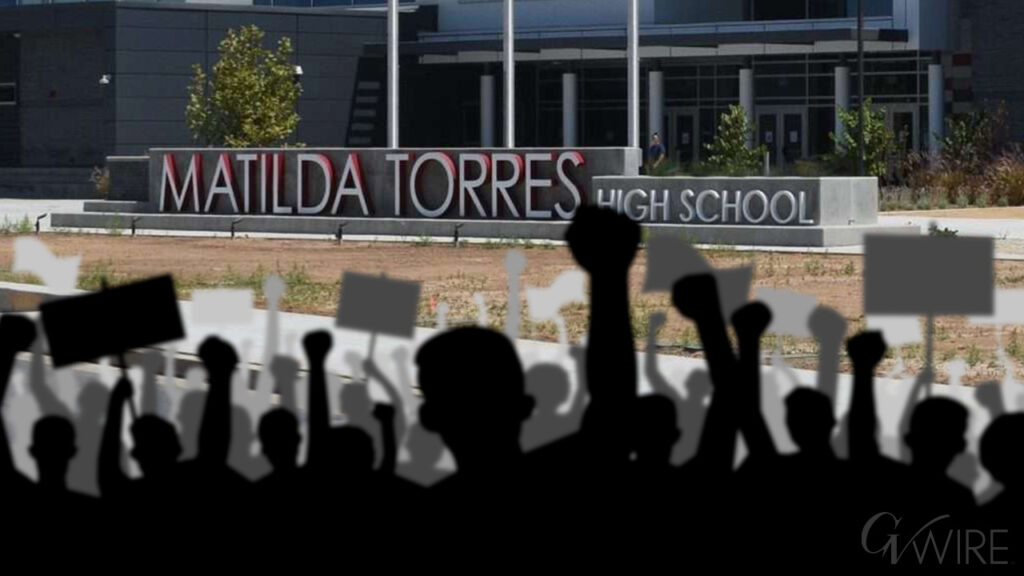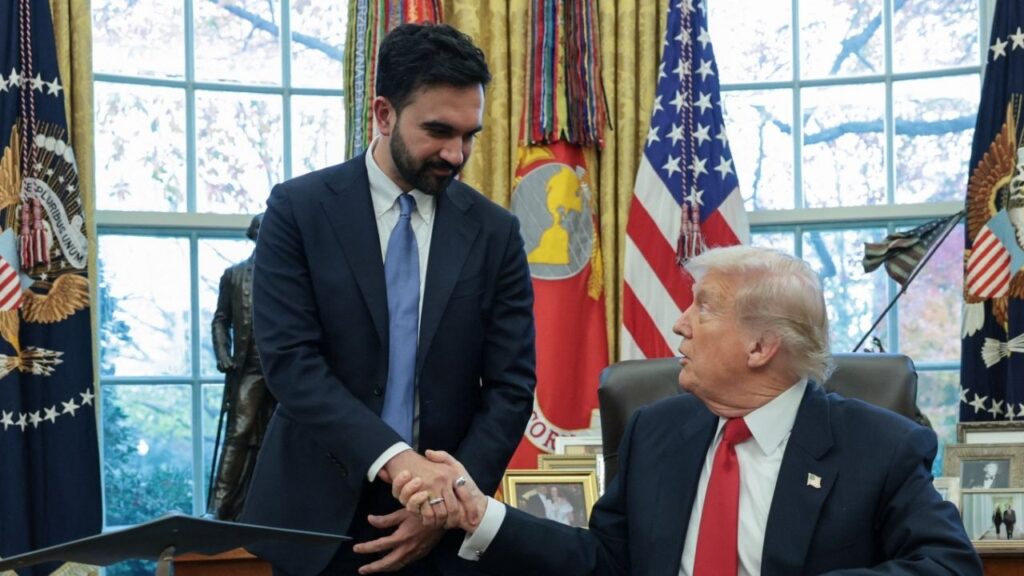Venezuelan opposition leader Maria Corina Machado during a rally in Caracas on July 4, 2024. Machado, who built a powerful social movement and has been living in hiding since last year, was awarded the Nobel Peace Prize on Friday, Oct. 10, 2025. (Adriana Loureiro Fernandez/The New York Times)
Share
|
Getting your Trinity Audio player ready...
|
Venezuelan opposition leader María Corina Machado, who built a powerful social movement challenging the country’s authoritarian president and has been living in hiding since last year, was awarded the Nobel Peace Prize on Friday. The Norwegian Nobel Committee praised “her tireless work promoting democratic rights for the people of Venezuela and for her struggle to achieve a just and peaceful transition from dictatorship to democracy.”
Machado emerged from Venezuela’s political sidelines and corralled the country’s fractious opposition behind her before the 2024 election. That followed years of political apathy in Venezuela, where President Nicolás Maduro’s government crushed protests and arrested dissidents, helping to spur an enormous exodus from the country.
After being barred from running, she backed an opposition candidate against Maduro in the presidential race. Maduro won what was widely regarded as a rigged election, and Machado went into hiding.
The director of the Norwegian Nobel Institute called Machado a few moments before the prize was announced to tell her she had been selected. In a video the committee shared on social media, she is heard saying: “This is an achievement of a whole society. I am just, you know, one person. I certainly do not deserve this.”
David Scheffer, an international law scholar at Arizona State University, said that in choosing Machado, the Nobel committee had “elevated a courageous hero of peacemaking — someone who works among her own people to protect them against repression and atrocity crimes in order to shape a more peaceful and democratic world.”
Here’s What Else to Know:
— Democracy campaigners: Machado is the latest female democracy campaigner to receive the honor. In 2023, Narges Mohammadi of Iran was recognized for her crusade for women’s rights. In 1991, Aung San Suu Kyi of Myanmar was awarded the prize for “her nonviolent struggle for democracy and human rights.” They both were in prison when they were honored by the Nobel committee, and remain there today.
— A secretive process: The Nobel committee accepts nominations from a pool of potentially thousands of nominators, and though the official list of nominees is kept secret, some names are revealed by those who nominated them. This year, 338 candidates — 244 people and 94 organizations — were nominated for the prize. A committee of five people appointed by the Norwegian parliament selects the recipient in secret. The winner is awarded 11 million Swedish kroner (about $1.2 million).
— U.S.-Venezuela tensions: Tensions between the United States and Venezuela have escalated in recent weeks, after President Donald Trump said the United States was in an armed conflict with drug cartels. His administration has launched military strikes on boats in the Caribbean Sea that it says are used by drug smugglers, and some of Trump’s top aides are pushing to oust Maduro from office.
— Trump’s campaign: Trump has been obsessed with winning the award for years, complaining privately and publicly that he has not received the honor. Several groups or individuals — including the leaders of Israel, Pakistan and Cambodia — said they had nominated him, though this year’s award was intended to honor achievements in 2024, before Trump had returned to the White House.
— The other Nobels: Friday’s announcement followed a week of Nobel Prizes in the arts and sciences.
—
This article originally appeared in The New York Times.
By Jonathan Wolfe/Adriana Loureiro Fernandez
c. 2025 The New York Times Company


